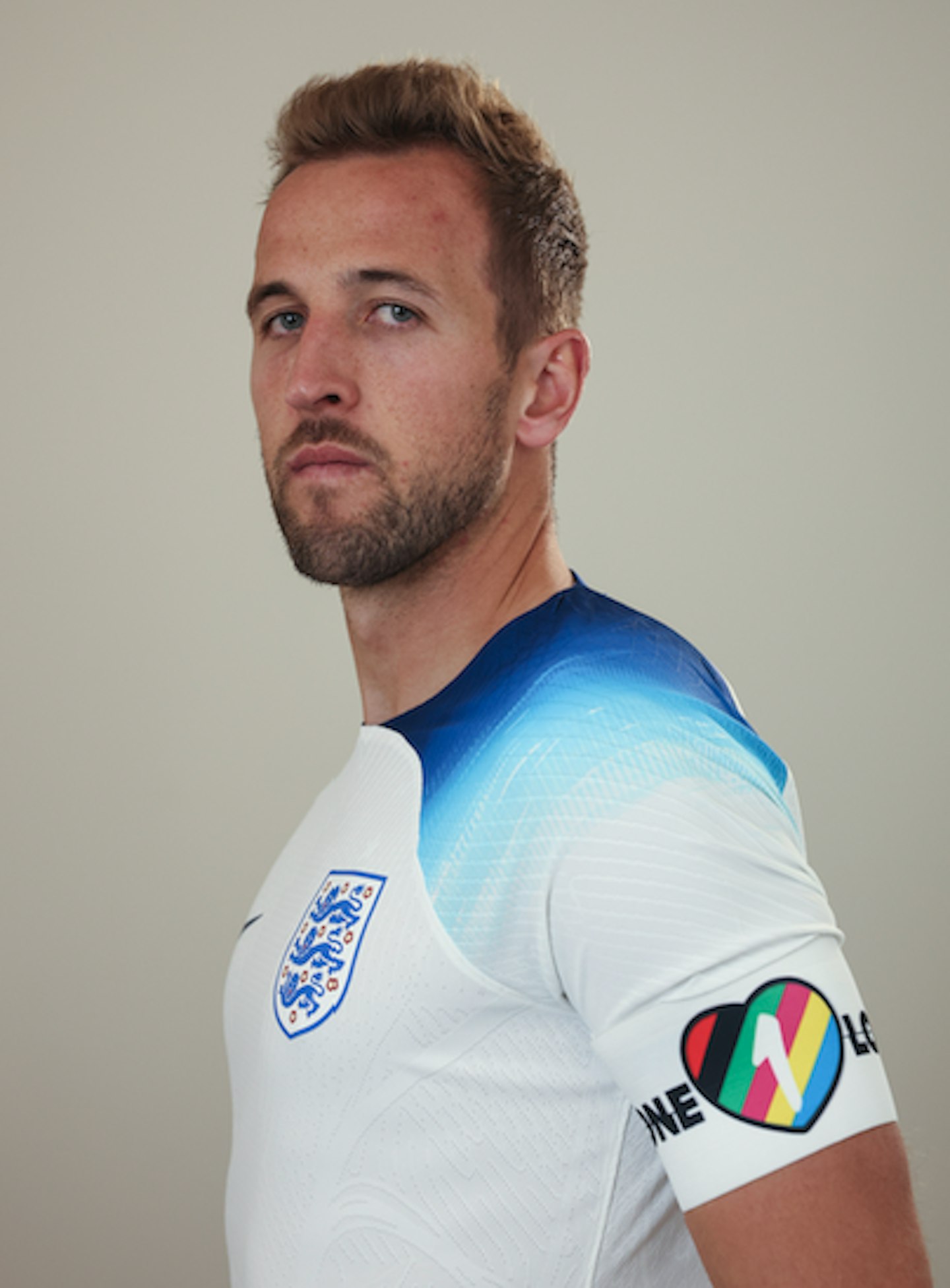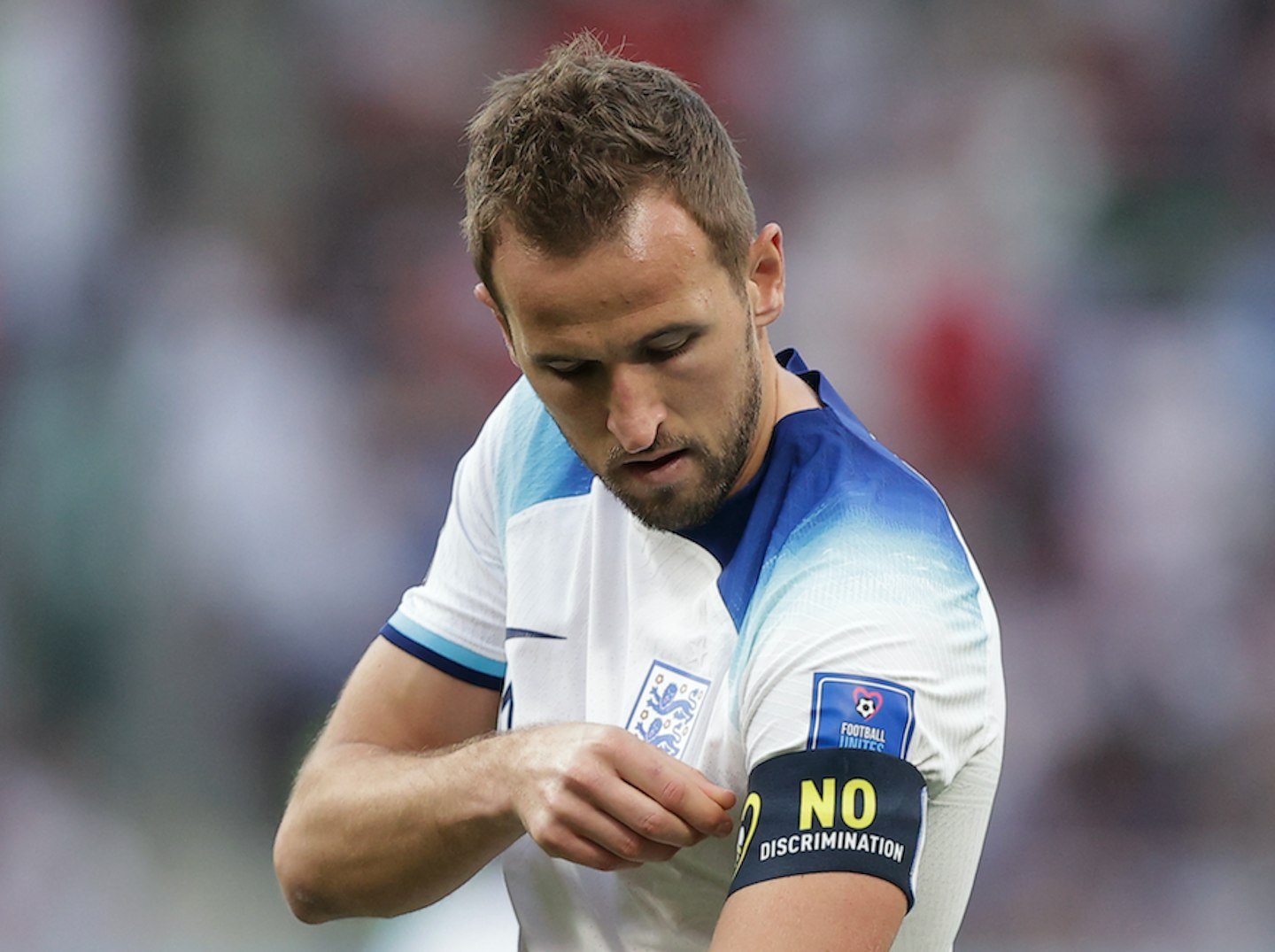As I sneakily watched England’s first match of the World Cup 2022 during my lunch break, listening to the cheers and excited commentators screaming ‘GOAAAAL’ six times over, I found myself feeling sadder and sadder. The beautiful game, seeped in our British DNA like fish and chips and Corrie, unites us all: men, women, old, young, brown, black or white. But for myself, as an LBGTQ+ person, with the terrifying anti-queer views held by host country Qatar, I just don’t feel included.
I'll admit that, day-to-day, I’m not a huge football fan. But like everyone during these big, monumental games that give us an excuse to meet mates in pubs and bond with randoms over our shared love of not being terrible at something, of course I get involved. I love nothing more than a spot of glory-supporting and a flag wave when the occasion dictates.
My general indifference to football, however, doesn’t come from actually disliking the game, but from never quite feeling like it’s a sport for me. Footy has always been something I’ve found synonymous with overly macho lads shouting homophobic abuse at players or fans of opposing teams. It reminds me of childhood bullying as the ball hit me in the face on the pitch while school bullies sent a chorus of cruel names my way. Couple this with the fact that there are virtually no ‘out’ players, I’ve often felt like I wouldn’t be welcomed as a football fan, even if I found myself becoming the most rabid supporter.

That’s why when, back in June last year at the Euro 2020 game between England and Germany, as Harry Kane proudly sported a rainbow captain’s armband around his bicep, it meant everything to me. It was a clear sign that LGBTQ+ people ARE welcome to join in, to scream alongside the butchest and burly. That, no matter who you are, this beautiful sport can be for all. I’ve read so many fleeting comments about this seemingly trivial piece of material being ‘nothing about football’ but for LGBTQ+ people, this show of solidarity means everything.
I remember DMing Harry Kane during the Euros on Instagram, thanking him for showing his support for queer people - a message I like to think he read and appreciated, because I meant it. For what felt like the first time in football’s history, a premier league football player of the highest calibre was prepared to risk any backlash or negativity to stand tall, bright and sparkly next to all those young kids (and adults) who have previously felt ostracised by the game.
This is why on Monday, when I sat down to watch the England v Iran opening match, as Kane walked on to the pitch wearing his black ‘No Discrimination’ band instead of the intended ‘One Love’ one, I felt utterly let down. The sentiment is still there, of course, and I like to believe it was with a heavy heart – hands tied by FIFA’s last-minute threats of yellow cards – that Harry removed the rainbow and replaced it with the much more sombre band supplied by the powers that be. But nevertheless, how much of a statement would it have made if Harry had risked that yellow card? Or that fine? Or whatever else was threatened, the finer details I’m still yet to fathom. I couldn’t help but feel that LGBTQ+ people were back to square one, as though we were on the subs bench waiting for the next time we are called. It was yet another reminder: football isn’t for you.

Can you imagine how any closeted players, still too afraid to come out, will have felt knowing this this one simple message of tolerance, love and acceptance is still too much? It will have made them feel ashamed, embarrassed, even dirty and probably made them even less likely to come out in the future. Seeing Alex Scott defy any rules by wearing the rainbow band on the BBC made me feel as though one person, at least, was willing to put their head above the parapet. What a legend.
It was really interesting listening to Jill Scotttalk about women’s football this week on I’m A Celeb when she said that it’s still too hard for male footballers to come out, yet in the women’s game this isn’t an issue. Some players are with women and some with men and it doesn’t matter. There was no discussion around any of this during the epic Euros triumph this year that saw the Lionesses bring football home, and that was because there didn’t need to be. But in the men’s game, clearly, this is still very much a conversation that needs to be had, and now that the game is being played in a country where it is illegal to be gay, where people are beaten and imprisoned, that discussion needs to be had louder than ever.
As I watched the news last night, listening to stories of reporters and fans wearing rainbow t-shirts being told to remove them as such ‘symbols’ are banned, I found myself feeling unable to think about the coming weeks ahead, where the football will be inescapable. No doubt I’ll lean in and will find the excitement somewhere, but if we do bring football home again by Christmas, the cup will definitely feel a lot less shiny.
